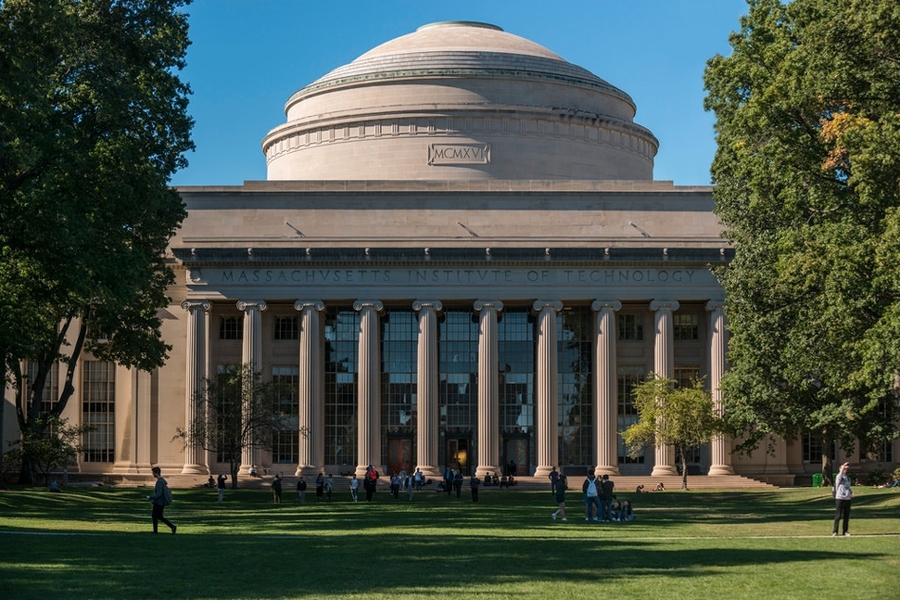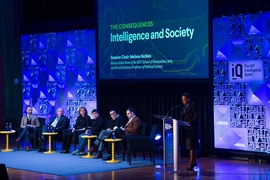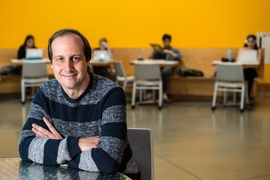Each year MIT professors invite thousands of undergraduates into their labs to work on cutting edge research through MIT’s Undergraduate Research Opportunities Program (UROP). Starting this fall, the MIT Quest for Intelligence will add a suite of new projects to the mix, allowing students to explore the latest ideas and applications in human and machine learning.
Through the generosity of several sponsors — including former Alphabet executive chairman Eric Schmidt and his wife, Wendy; the MIT-IBM Watson AI Lab; and the MIT-SenseTime Alliance on Artificial Intelligence — The Quest will fund up to 100 students to participate in Quest-themed UROP projects each semester.
“We’re going to advance the frontiers of brain science and artificial intelligence by harnessing the brain power of our students,” says The Quest’s director, Antonio Torralba, a professor of electrical engineering and computer science who also heads the MIT-IBM Watson AI Lab. “We thank our partners for the funding that has made these new student research positions possible.”
MIT President L. Rafael Reif launched The Quest in February, framing its mission in a pair of questions: “How does human intelligence work, in engineering terms? And how can we use that deep grasp of human intelligence to build wiser and more useful machines to benefit society?”
To answer those questions, The Quest brings together more than 250 MIT researchers in artificial intelligence, cognitive science, neuroscience, social sciences, and ethics. Organized to ensure that breakthroughs in the lab are matched by the creation of useful tools for everyday people, The Quest’s advances might include new insights into how humans and machines learn, or new technologies for diagnosing and treating disease, discovering new drugs and materials, and designing safer automated systems.
The Quest has been met with enthusiasm by the MIT community and prominent technology leaders, many of whom spoke at a kick-off event in Kresge Auditorium in March. “I think MIT is uniquely positioned to do this,” said Eric Schmidt, a founding advisor to The Quest and a current MIT Innovation Fellow. “I think you can turn Cambridge into a genuine AI center.”
Now in its 49th year, UROP allows undergraduates to work closely with faculty, graduate students and other classmates on original research. More than 91 percent of graduating seniors participate in at least one UROP project in their time at MIT, with about 2,600 students participating each year. Students gain experience in their major or exposure to a new field, and practice writing proposals and communicating their results.










